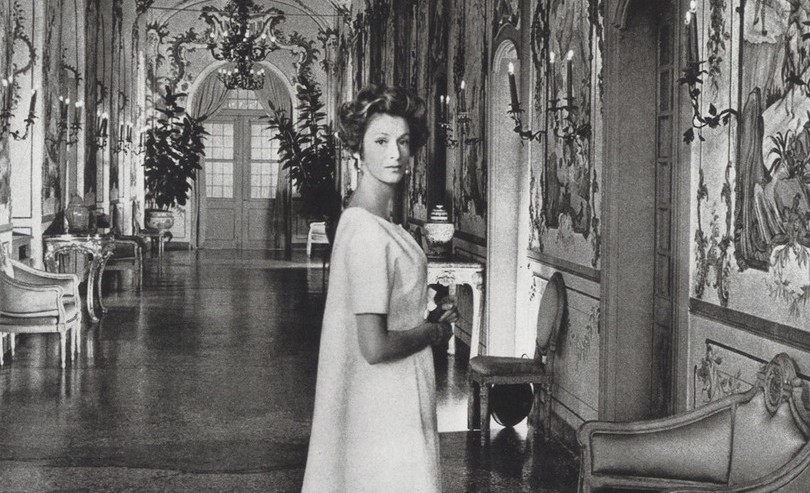*translated and adapted from the blog A Venetian in Toronto
Born into one of the most aristocratic families of Southern Italy, her full name would have been Marella Agnelli Duchess of Melito, Princess of Caracciolo di Castagneto and Neapolitan Patrician by blood and birth. But for her whole life, once she came under the scrutiny of the public eye, she was merely “the wife of” Giovanni Agnelli, the FIAT tycoon.

Marella Agnelli, a woman who marked the second half of the twentieth century with her class, style and elegant privacy, left us on February 23, 2019. The parties had soon saturated her refined palate; to the international jet set she preferred the intimacy of family homes and her much-loved gardens.

Flowers, hedges, hills and ponds were some of her many passions, passions that brought her closer to Voltaire (“I learned to cultivate my garden”, she used to say, paraphrasing Voltaire’s ‘Candide’, «Il faut cultiver notre jardin»). Vital to her was her friendship with the English landscape designer Russel Page, who taught her that “ we must become the vassals of something higher, otherwise we become the slaves to something lower.”

It was 1953 and the American photographer Richard Avedon turned her into the ‘swan’ with a series of shots in which the young lady is portrayed as in one of Modigliani’s paintings, by Modigliani, in a three-quarter pose, with her superb profile and elegant long neck.

A few years later, just like the candid bird, she would attend the famous Black and White Ball organized by Truman Capote, to which only 500 fortunate were invited.

A life apparently gilded, in reality made of suffering and profound pain: starting from the unhappy marriage of her parents (arranged to benefit both parties), continuing with the suicide of her son Edoardo in 2000 and the numerous misadventures – to say the least – of her grandchildren, the Elkanns.

Marella was a woman who never flaunted her rank. She lived with grace and discretion those fortunes that the fate had placed on her head, like a crown, even if at times it was made of thorns.

I am confident that her departure was the occasion to rejoin the flock of beautiful swans to which she belonged, and which she will be guiding with her weightless elegance and refined reserve.


